North Korea yesterday reopened its border to South Koreans bound for a showpiece industrial estate in the secretive nation, ending a sporadic blockade that threatened to shut down factories there.
The North gave no explanation for its change of heart, which comes amid continuing high tensions between the two governments.
Elsewhere along the heavily fortified frontier, activists yesterday floated more anti-Pyongyang leaflets into the North — defying warnings from Seoul that their campaign would further inflame the situation.
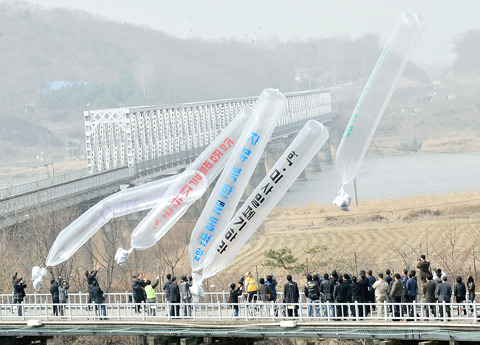
PHOTO: AFP
The communist state has for months been angry at a tougher stance on relations taken by Seoul’s conservative government. It has blasted an ongoing US-South Korean military exercise, calling it a prelude to invasion.
SATELLITE
The North has also scheduled what it calls a satellite launch for April 4 to April 8. Washington and Seoul say its real purpose is to test a ballistic missile that could reach Alaska.
On March 9, the first day of the joint exercise, the North switched off military phone and fax lines that were used to authorize border crossings, before relenting the following day.
Last Friday it again shut the border without explanation, raising fears that many South Korean plants at the Kaesong estate would soon have to close for lack of raw materials.
Seoul officials said the North’s military sent a letter yesterday authorizing the resumption of trips both ways across the western and eastern crossings. Again, there was no explanation.
Kaesong estate opened in 2005 as a symbol of reconciliation on the divided peninsula, but its operations have several times been hampered by political tensions.
About 39,000 North Koreans work for 98 South Korean firms, producing items such as watches, clothes, shoes and kitchenware. Raw materials are trucked northwards and finished products travel the other way.
Koh Yu-hwan, a professor at Seoul’s Dongguk University, said the saga may indicate a lack of communications between the North’s military and its economy-related agencies.
“In order to protest the US-South Korean military exercise, the North’s military may have cut off border communications lines without thinking enough about the impact the move would have on economic and other sectors,” he said.
The estate earns the impoverished North some 30 million dollars a year in wages for workers, which are paid directly to official bodies.
At the Imjingak border area not far from the crossing, rights activists launched 10 giant balloons carrying a total of 100,000 leaflets denouncing the North’s regime and its leader, Kim Jong-il
“Down with Kim Jong-Il dictatorship!” a message on one balloon read.
The activists have started attaching North Korean banknotes to the flyers to encourage Northerners to pick them up, despite the risk of punishment.
The Seoul government has urged them to halt the launches, on the grounds they could inflame relations, but says it has no laws to ban them.
However, the activists have been investigated for a possible legal breach by attaching North Korean won. Seoul says unauthorized use of the currency in the South is punishable by up to three years in jail or heavy fines.
CHINA VISIT
Kim arrived in Beijing yesterday as the North prepared for the widely criticized satellite launch. Washington and Seoul say the launch is to test a long-range missile in defiance of a UN resolution passed after the North’s missile and nuclear tests in 2006.
China, one of Pyongyang’s few major allies and its largest trade partner, has not publicly stated its position on the launch.
Beijing also hosts six-nation talks on dismantling North Korea’s nuclear programs, which have been stalled since last December.
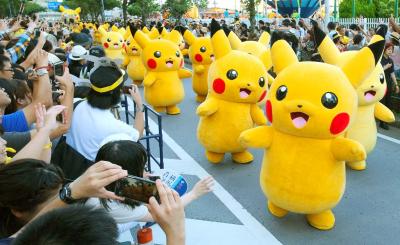
China’s military news agency yesterday warned that Japanese militarism is infiltrating society through series such as Pokemon and Detective Conan, after recent controversies involving events at sensitive sites. In recent days, anime conventions throughout China have reportedly banned participants from dressing as characters from Pokemon or Detective Conan and prohibited sales of related products. China Military Online yesterday posted an article titled “Their schemes — beware the infiltration of Japanese militarism in culture and sports.” The article referenced recent controversies around the popular anime series Pokemon, Detective Conan and My Hero Academia, saying that “the evil influence of Japanese militarism lives on in
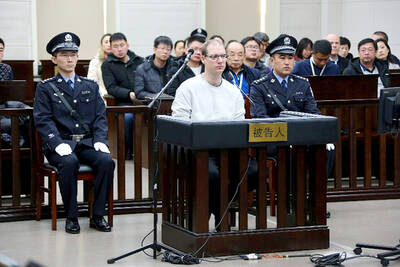
DIPLOMATIC THAW: The Canadian prime minister’s China visit and improved Beijing-Ottawa ties raised lawyer Zhang Dongshuo’s hopes for a positive outcome in the retrial China has overturned the death sentence of Canadian Robert Schellenberg, a Canadian official said on Friday, in a possible sign of a diplomatic thaw as Canadian Prime Minister Mark Carney seeks to boost trade ties with Beijing. Schellenberg’s lawyer, Zhang Dongshuo (張東碩), yesterday confirmed China’s Supreme People’s Court struck down the sentence. Schellenberg was detained on drug charges in 2014 before China-Canada ties nosedived following the 2018 arrest in Vancouver of Huawei chief financial officer Meng Wanzhou (孟晚舟). That arrest infuriated Beijing, which detained two Canadians — Michael Spavor and Michael Kovrig — on espionage charges that Ottawa condemned as retaliatory. In January
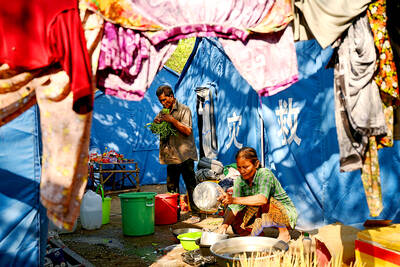
A sign hanging from a rusty ice-green shipping container installed by Thai forces on what they say is the border with Cambodia reads: “Cambodian citizens are strictly prohibited from entering this area.” On opposite sides of the makeshift barricade, fronted by coils of barbed wire, Cambodians lamented their lost homes and livelihoods as Thailand’s military showed off its gains. Thai forces took control of several patches of disputed land along the border during fighting last year, which could amount to several square kilometers in total. Cambodian Kim Ren said her house in Chouk Chey used to stand on what is now the Thai
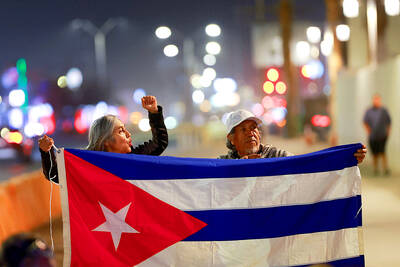
NEW RULES: There would be fewer school days, four-day workweeks, and a reduction in transportation services as the country battles a crisis exacerbated by US pressure The Cuban government on Friday announced emergency measures to address a crippling energy crisis worsened by US sanctions, including the adoption of a four-day work week for state-owned companies and fuel sale restrictions. Cuban Deputy Prime Minister Oscar Perez-Oliva Fraga blamed Washington for the crisis, telling Cuban television the government would “implement a series of decisions, first and foremost to guarantee the vitality of our country and essential services, without giving up on development.” “Fuel will be used to protect essential services for the population and indispensable economic activities,” he said. Among the new measures are the reduction of the working week in